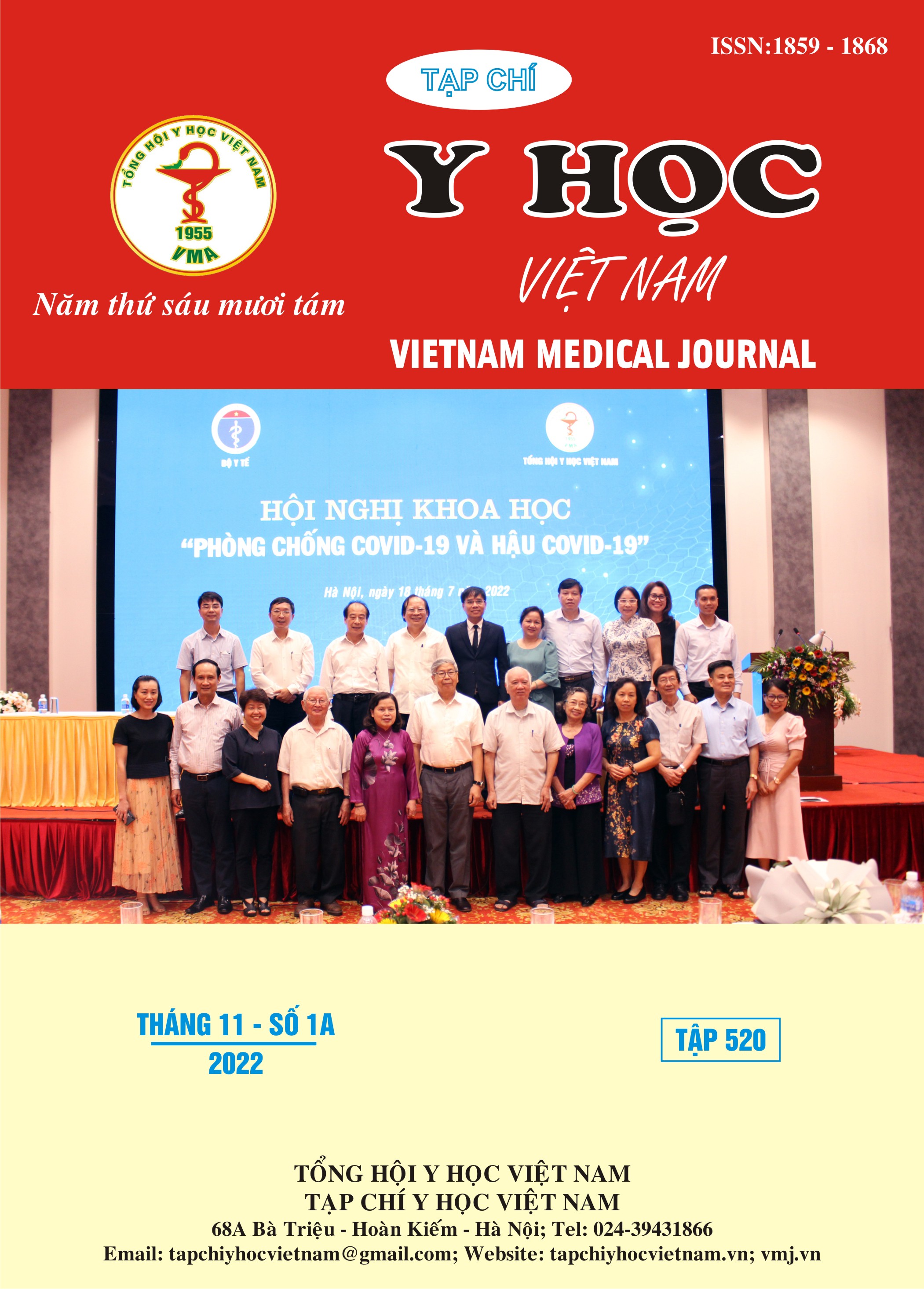INTRALESIONAL STEROID INJECTION FOR TREATMENT OF BENIGN VOCAL FOLD DISORDERS: A SCOPING REVIEW
Main Article Content
Abstract
Objective: to describe methods of vocal fold steroid injection (VFSI) for treatment of benign vocal fold diseases. Methods: the analytic framework is based on a scoping review methodology. The databases Pubmed, Google Scholar, Sciencedirect, Cochrane were searched to identify relevant studies. Results: 26 studies were chosen in this review. Indications of benign vocal fold diseases include: vocal nodules and vocal polyp make up mainly, followed by Reinke’s edema, vocal mucus cyst, vocal process granuloma and vocal scars. VFSI was often performed under local anesthesia of the pharynx and larynx, with a success rate greater than 90%. The most common VFSI is the transoral approach and nasal transfer in case the patient has a lot of pharyngeal reflex. Other methods include transcutaneous injection (transcricothyroid, transthyrohyoid, transcartilage), transnasal approach and VFSI combined microsurgery. Conclusion: VFSI is often performed under local anesthesia in office, with a high rate of success. Triamcinolone is the most favoured steroid. The most common method of VFSI is transoral approach and nasal transfer in case the patient has a lot of pharyngeal reflex. Vocal nodules and polyp are the main indications of VFSI.
Article Details
Keywords
benign vocal fold diseases, local steroid injection
References
2. Jang JY, Kim DY, Lee GY, et al. Voice Outcomes After Laryngeal Microsurgery With Adjunctive Steroid Injection for Reinke Edema. Clin Exp Otorhinolaryngol. 2021;14(3):362-364. doi:10.21053/ceo.2020.01746
3. Bensoussan Y, Anderson J. In-office laryngeal procedures (IOLP) in Canada: current safety practices and procedural care. J Otolaryngol - Head Neck Surg J Oto-Rhino-Laryngol Chir Cervico-Faciale. 2018;47(1):23. doi:10.1186/s40463-018-0270-2
4. Dion GR, Nielsen SW. In-Office Laryngology Injections. Otolaryngol Clin North Am. 2019;52(3):521-536. doi:10.1016/j.otc.2019.02.006
5. Rosow DE. Trends in Utilization of Vocal Fold Injection Procedures. Otolaryngol--Head Neck Surg Off J Am Acad Otolaryngol-Head Neck Surg. 2015;153(5):812-814. doi:10.1177/0194599815597208
6. Shoffel-Havakuk H, Sadoughi B, Sulica L, Johns MM. In-office procedures for the treatment of benign vocal fold lesions in the awake patient: A contemporary review. The Laryngoscope. 2019;129(9):2131-2138. doi:10.1002/lary.27731
7. Clary MS, Milam BM, Courey MS. Office-based vocal fold injection with the laryngeal introducer technique. The Laryngoscope. 2014;124(9):2114-2117. doi:10.1002/lary.24659


